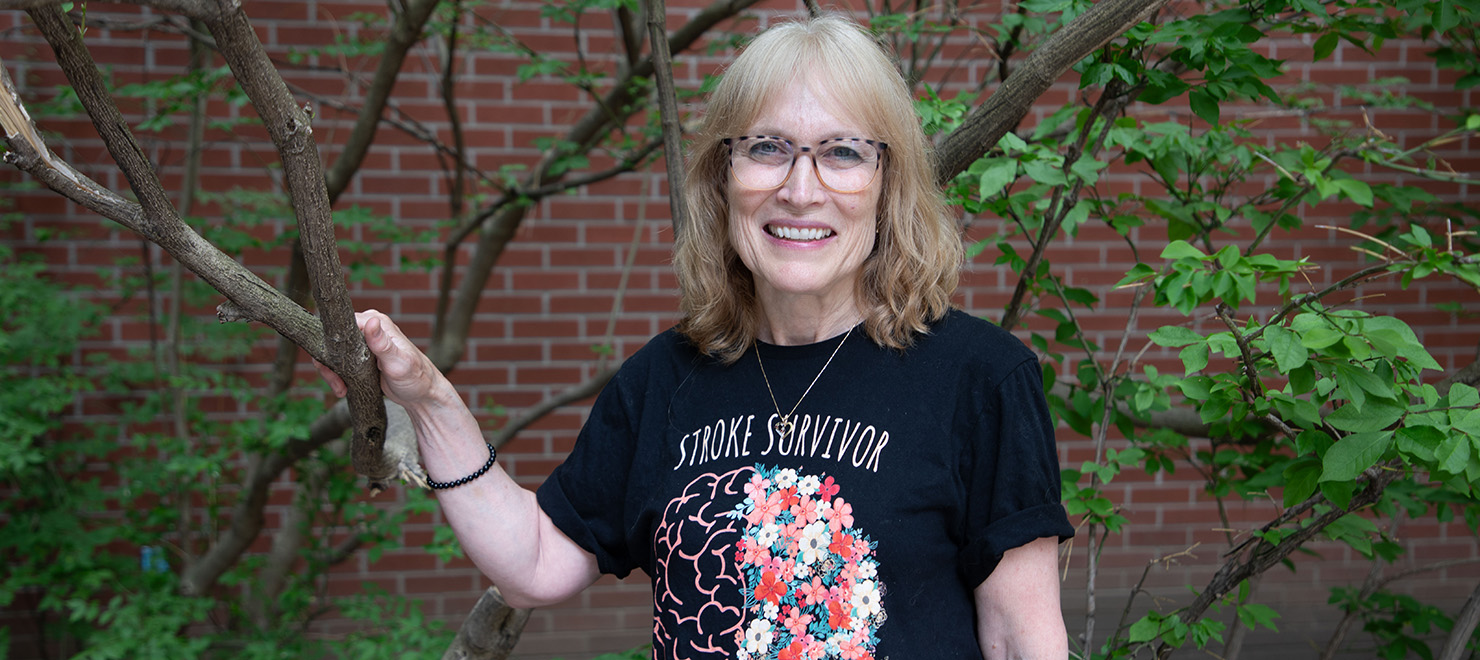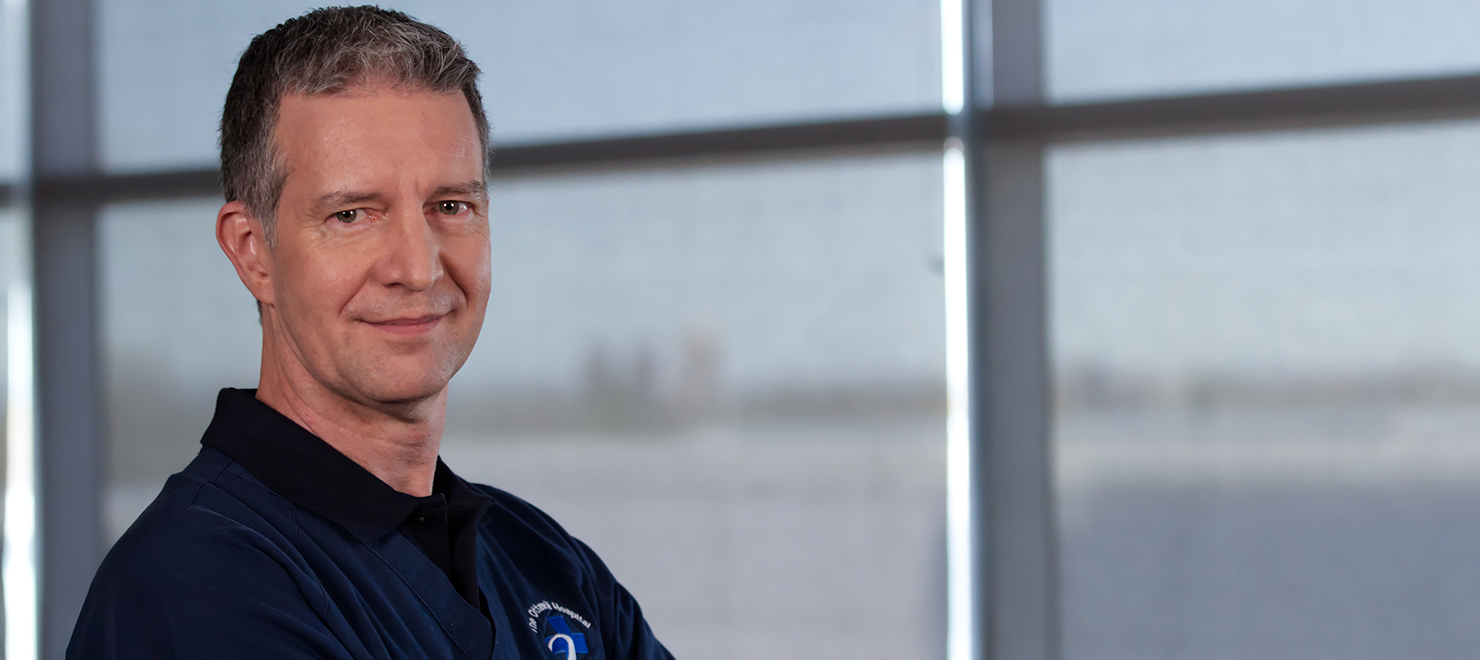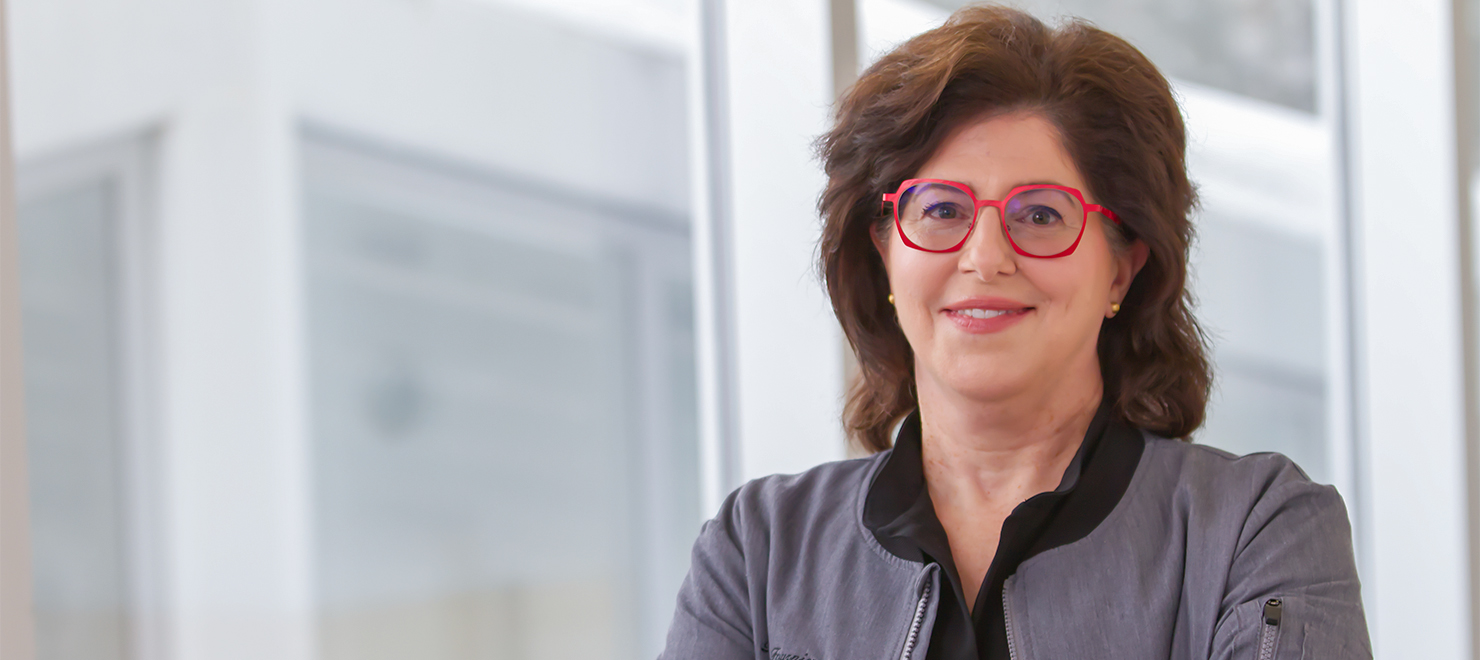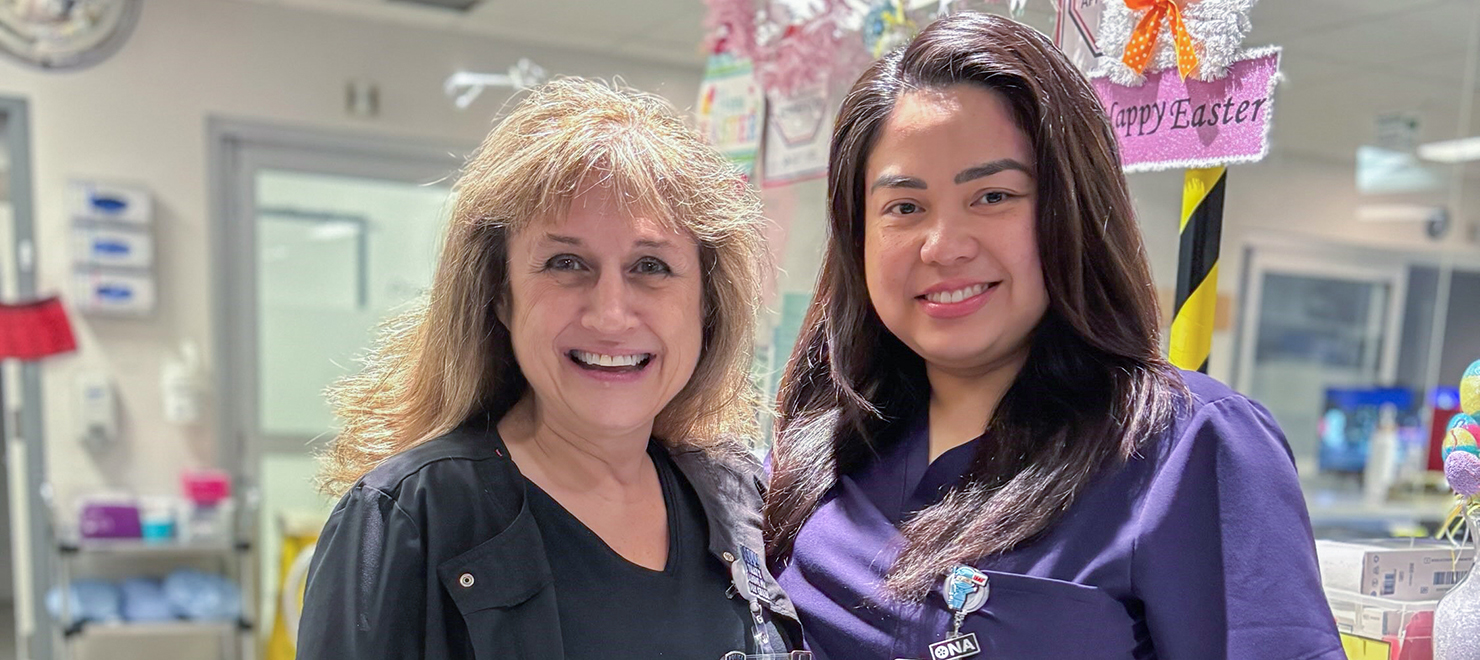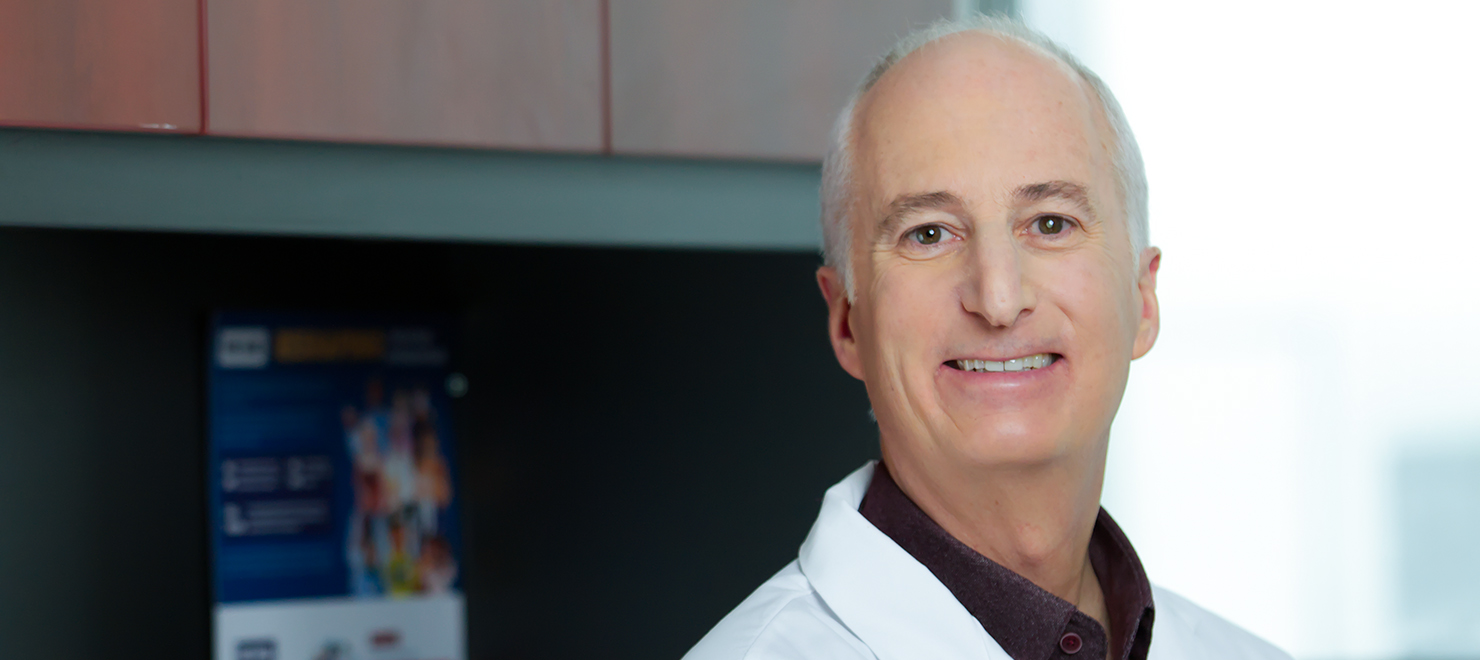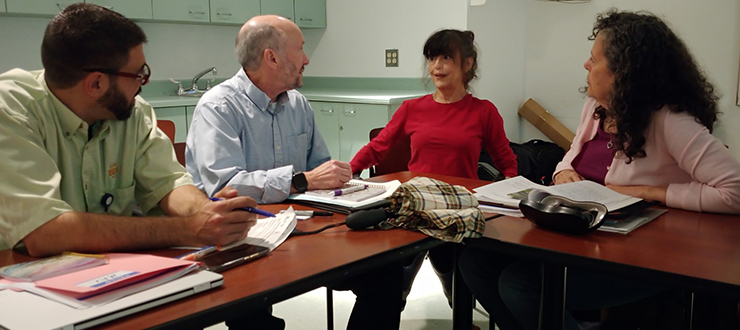
Patient advisors at the storytelling workshop broke into small groups to practice storytelling strategies.
“Imagine waking up in the Intensive Care Unit having no idea how you got there.”
That’s how one patient’s story begins.
Every patient who comes to The Ottawa Hospital has a story. A new workshop at The Ottawa Hospital is teaching patients the finer points of storytelling so that they can become compelling teachers for the health-care professionals of today and tomorrow.
The two-day workshop was co-designed by a group of ten patient advisors, experts in adult learning, psychiatry, psychology and patient education research. It consisted of presentations, large and small group discussions, reflective writing exercises and coaching by storytelling experts.
Melanie Clement, a patient advisor with The Ottawa Hospital, attended the workshop. She hopes to use storytelling to encourage her doctors to consider alternative diagnoses.
“Because I live with an exceedingly rare illness that affects all my systems, I’ve had experience with quite the gamut of medical professionals,” Melanie explained. “A lot of my symptoms masquerade as other things. So for me, the challenge is getting doctors to be willing to consider the outlying cases.”
“The effort to truly listen to a patient and to understand them is the heart of patient-centered care.“
For Melanie, the power of storytelling can also help strengthen the sense of partnership she feels between herself and her doctors, not only to find the right treatments, but also to improve the patient experience overall.
“Doctors need to be confident – patients need that from them,” she said. “But If I can persuade them that being open to being wrong is not necessarily a bad thing, I think It drives everything. It improves patient engagement. I think doctors become more compassionate and better listeners. I think they grow more and learn more as doctors. I think better treatments and new technologies come out of that mindset.”
“Patients are powerful educators with strong, authentic voices,” explained Claudia Hampel, Patient and Family Engagement Lead at The Ottawa Hospital. “By teaching them how to craft and deliver their story in a compelling way, we are giving them tools to engage with their care team in a new way. Through storytelling, patients and care teams become partners in the journey.”
One of the storytelling experts at the workshop was Dr. Cory Ingram, a family physician, and a palliative medicine consultant at the Mayo Clinic
“Storytelling is important to me because the essence of the patient is ultimately the guide that we should all follow in caring for them,” he said. “The effort to truly listen to a patient and to understand them is the heart of patient-centered care.“
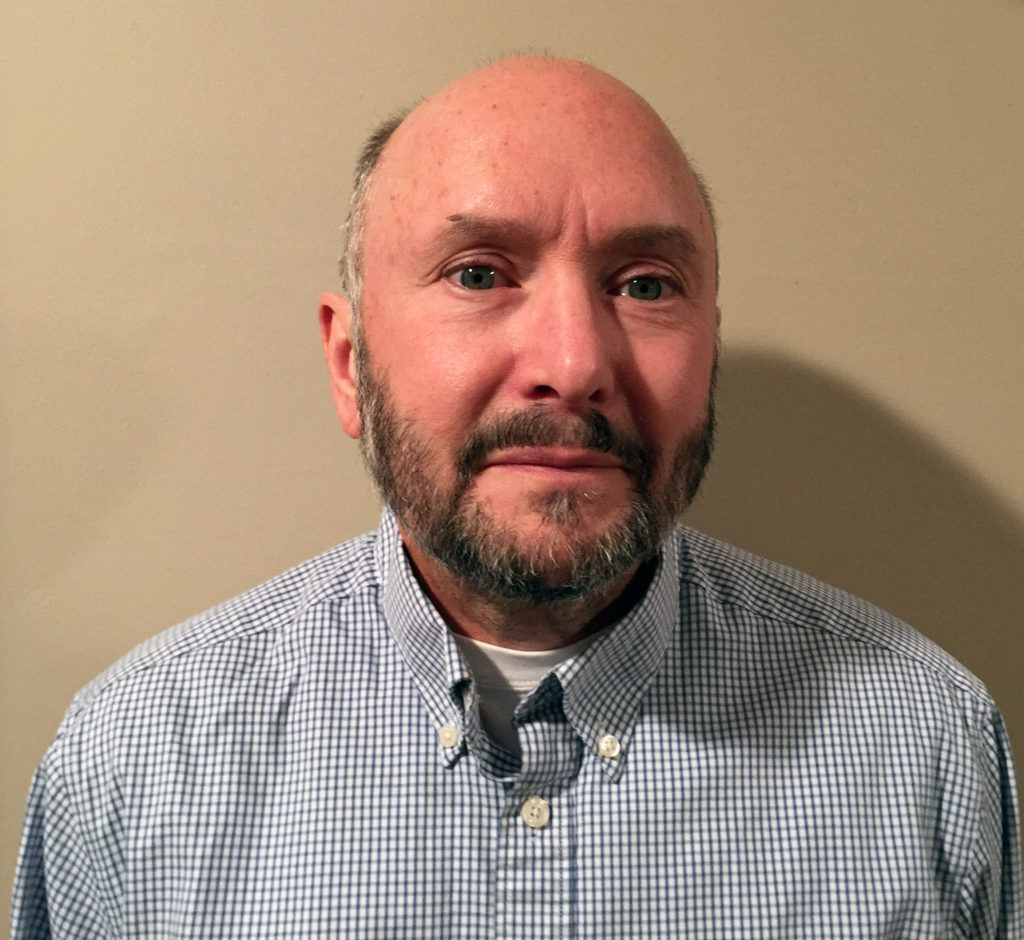
Hampel echoes that idea.
“Well-told stories are impactful intellectually and emotionally,” she said. “Our hope is that medical professionals make patient-centred changes as a result of hearing them.”
For patient advisor Ben Murray, storytelling is a way he can use his personal experience to improve care for trans and gender-diverse patients.
“I am happy to do what I can to help the medical profession understand what it’s like to be gender diverse, what my needs are, what my experiences are, things that went well and things that didn’t go well,” said Ben.
Like a seasoned storyteller, Ben already has his goal in mind.
“If people in my audience go away with some tips and new information that helps them provide more respectful care, I will have accomplished what I wanted to,” he said.
“I think workshops like this will transform aspects of our health education, which historically has been focused on the clinical aspects of managing disease.”
Not all patients are ready to tell their story, no matter how powerful it might be. Sharing such personal thoughts, feelings and reflections on one’s health journey with an audience comes with documented risks to one’s sense of emotional safety. In order to reduce those risks, Dr. Lynn Ashdown, patient advisor at The Ottawa Hospital and storyteller workshop co-creator worked with health-care and patient partner experts to co-create a self-reflective questionnaire to help prospective storytellers assess their readiness to proceed with storytelling. Going forward, each participant in the storytelling workshop will be asked to complete the questionnaire before the workshop begins.
Dr. Jerry Maniate is an executive sponsor and strong supporter for the Patients as Partners Program. He is also the Vice-President of Education at The Ottawa Hospital, Clinician Investigator of the Clinical Epidemiology Program at the Ottawa Hospital Research Institute, and an associate professor in the Departments of Medicine and Innovation in Medical Education at the University of Ottawa.
“I think workshops like this will transform aspects of our health education, which historically has been focused on the clinical aspects of managing disease,” he said. “The concept of narrative medicine seeks to understand – what is the patient experiencing? What support are they looking for?”
Narrative medicine is not a departure from modern medical education methods, but rather an evolution of it.
“We still need clinicians – nurses, doctors, pharmacists, physiotherapists, occupational therapists, everyone – to know what to do,” said Dr. Maniate. “But having them appreciate the context into which their patient is receiving that care can only be heard by listening to the patient.”
For Dr. Maniate, teaching patients how to effectively and powerfully convey information to their care provider is the way forward.
“We are incorporating what the patient brings to the conversation and truly making it about them, but doing it in such a way that we are not diminishing the expertise of the care provider,” said Dr. Maniate.
Patient storytellers will be integrated gradually into medical education opportunities.
“I would like to work with the patients to find the most impactful point at which we can introduce them into the learning experience at The Ottawa Hospital and bring them into those conversations,” said Dr. Maniate.
Whether those conversations are about health advocacy, the impact of receiving a new diagnosis, living with a diagnosis or other important topics is yet to be determined.
For his part, Dr. Ingram praises the patient storyteller initiative and anticipates good things to come.
“Congratulations to the leadership of The Ottawa Hospital for being a leader in the world for introducing the patient story to transform the educational experience and ultimately the care experience at The Ottawa Hospital,” he said. “They are thinking outside the box. They are doing what no other group is doing.”
Hampel plans to offer the storytelling workshop to patient advisors twice per year. Eventually she would like participants from previous workshops to become mentors for new participants.
If you would like to become a patient or family advisor, please call the Department of Patient Relations at 613-798-5555 x13377 or email prelations@toh.ca.

Support patient care and research at
The Ottawa Hospital
You might also like…
Aging well: Guidance for older adults
In this special video series for both older adults and their loved ones, geriatric care specialists from The Ottawa Hospital offer guidance on navigating common health-care challenges that may arise with aging.
From survivor to supporter: Peer volunteers bring hope to patients recovering from stroke
Drawing on their own lived experiences as stroke survivors or caregivers, volunteers with March of Dimes Canada’s After Stroke Hospital Peer Connections program offer emotional support to those just beginning their recovery journey. Discover the difference they’re making and learn about how you can request support for a loved one — or become a beacon of hope yourself.
How to stay safe around water this summer
Drowning can happen to anyone — even strong swimmers. Emergency physician Dr. Christian Vaillancourt debunks common myths about drowning, explains how to act quickly to save a life, and shares what you can do to keep yourself and your loved ones safe around water.
What’s the difference between an optician, optometrist, orthoptist and ophthalmologist?
“Do I need to see an optician, optometrist, orthoptist or ophthalmologist?” We asked Ophthalmologist Dr. Annick Fournier to break down each role so you will know who to consult for your specific eye care needs.
Novice nurses and their mentors learn and grow together
Discover how mentorships at The Ottawa Hospital facilitate a smoother transition into practice for novice nurses, allow experienced nurses to hone their leadership skills, and play a crucial role in retaining nurses from both generations.
Respirologist answers FAQs about cystic fibrosis
Cystic fibrosis (CF) is the most common genetic disease affecting children and young adults in Canada. Respirologist Dr. Shawn Aaron provides an overview of CF, including causes, symptoms, and the remarkable improvements made in life expectancy over the years.


 To reset, hold the Ctrl key, then press 0.
To reset, hold the Ctrl key, then press 0.

